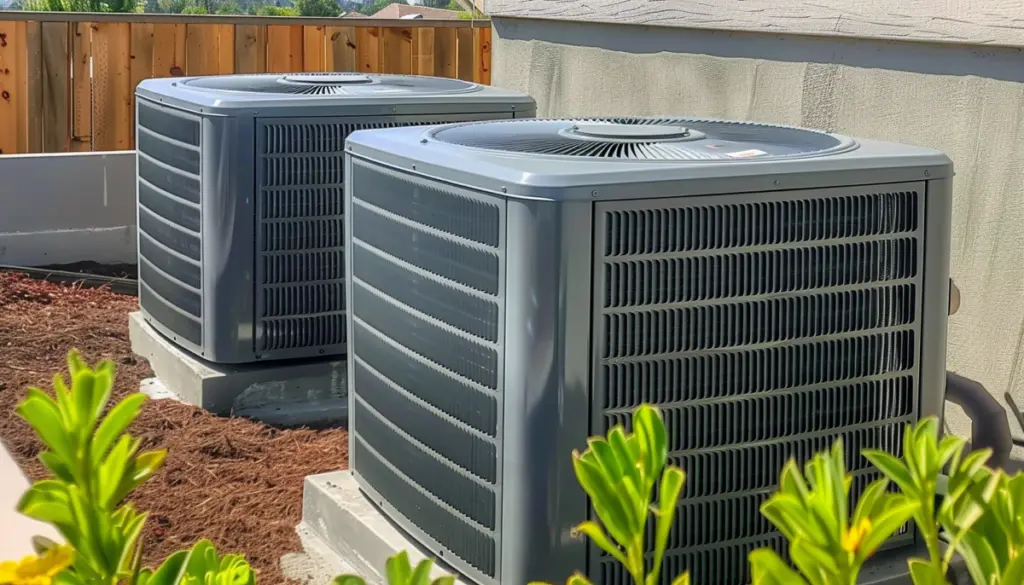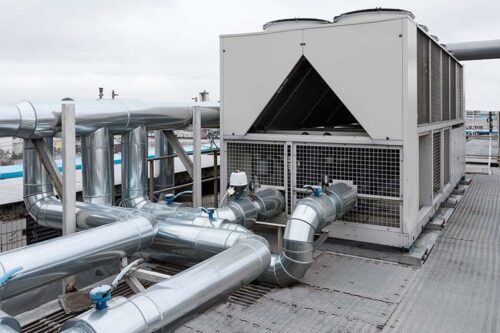Fast And Trusted Furnace Repair For Homes And Offices
Fast And Trusted Furnace Repair For Homes And Offices
Blog Article
Your Guide to Picking the Right HVAC System for Your Needs
Selecting an appropriate Heating and cooling system is an important choice that can significantly influence comfort and power efficiency in your home. Additionally, understanding the various kinds of systems available and their energy rankings can assist lead your option.
Comprehending Cooling And Heating System Types
When selecting a HVAC system, it is necessary to understand the numerous kinds readily available to fulfill your particular requirements. The main categories of a/c systems consist of air conditioning systems, ductless mini-split systems, warm pumps, and heating system systems.
Air conditioning systems are made to cool down multiple rooms making use of ductwork to disperse conditioned air. They are perfect for larger homes needing regular temperature control. Ductless mini-split systems, on the various other hand, supply flexibility and efficiency, as they enable for zoning capacities, enabling specific space temperature guideline without the requirement for ductwork.
Heatpump run by transferring warmth instead of producing it, making them an energy-efficient choice for both heating & cooling. They are particularly effective in moderate climates. Conversely, furnace systems make use of burning to generate warmth, utilizing either oil, gas, or electricity. They are favored in colder regions where home heating demands are significant.
Each system has distinct advantages and considerations, including installment requirements, maintenance, and total expenses. Recognizing these kinds will assist house owners make educated decisions based on their specific demands, climate, and budget constraints, eventually making certain optimum comfort and performance.
Examining Power Effectiveness
Power effectiveness is an important variable in the option of a cooling and heating system, as it straight impacts both energy prices and ecological sustainability. When assessing power efficiency, several metrics and scores can help assist your decision. The Seasonal Power Performance Ratio (SEER) and the Heating Seasonal Performance Aspect (HSPF) are vital signs for a/c systems, representing their efficiency over a normal air conditioning and heating season, respectively. Greater SEER and HSPF rankings suggest much better power performance, leading to decreased power consumption.
Furthermore, search for systems that have earned the power STAR tag. This accreditation indicates that the equipment meets stringent power performance standards established by the united state Epa. Think about the system's variable-speed modern technology, which permits much more efficient operation by changing the result to match demand, even more enhancing power savings.
Moreover, proper insulation and duct securing can dramatically influence the system's overall efficiency. In summary, selecting an energy-efficient heating and cooling system not just reduces your energy costs however additionally adds to a much more sustainable setting, making it a necessary consideration in your buying procedure.
Assessing System Size
Picking the appropriate size for a heating and cooling system is essential to ensuring optimal efficiency and efficiency. An undersized system may struggle to maintain desired temperature levels, resulting in raised damage, greater energy consumption, and decreased comfort. On the other hand, a large system can cause fast cycling, which not just triggers inefficiencies however likewise influences humidity control and air high quality.
To examine the ideal sizing, it is important to perform a lots calculation, which considers aspects such as the square video footage of the space, insulation levels, home window dimensions, and neighborhood climate conditions - furnace repair. This computation helps figure out the British Thermal Units (BTU) required for heating and cooling. In addition, it is essential to account for particular demands, such as the variety of residents and the visibility of heat-generating home appliances

Installment Costs and Budget Plan
An extensive understanding of installation costs is crucial for home owners and services thinking about a new HVAC system. The total cost of setup can differ extensively based on numerous variables, consisting of the sort of system, the complexity of installment, and the place of the home. Usually, installation costs can range from $3,000 to $10,000, relying on the system's dimension and effectiveness.
When budgeting for a HVAC system, it is crucial helpful resources to consider not only the initial setup costs but likewise any type of extra costs that might emerge, such as ductwork modifications, electric upgrades, or permits. In addition, it is suggested to get several quotes from qualified cooling and heating service providers to make certain affordable rates.
Homeowners ought to also consider the possible long-lasting financial savings linked with energy-efficient systems. While the upfront prices may be higher, energy-efficient versions can lead to substantial cost savings on utility bills over time.

Maintenance and Durability Considerations

Correct maintenance includes routine assessments, filter substitutes, and cleaning of air ducts and coils (air duct cleaning coquitlam). Ignoring these tasks can cause reduced effectiveness, increased power expenses, and early system failure. Property owners should likewise take into consideration the availability of service contracts, which often give scheduled maintenance and concern service, making certain that the system stays in peak condition
Longevity differs by system kind; for example, well-maintained central air conditioning devices can last 15 to 20 read what he said years, while warm pumps may have a lifespan of 10 to 15 years. Choosing a system with a solid track record for reliability, together with spending in routine maintenance, can dramatically improve the system's resilience. Furthermore, choosing higher-efficiency versions might bring about lasting cost savings on power costs, stabilizing the initial financial investment over time.
Verdict
To conclude, choosing a suitable heating and cooling system requires cautious consideration of different factors, including system kinds, power performance, and size. Evaluating installment costs and lasting maintenance needs is important for making sure optimum efficiency and cost-effectiveness. Engaging with HVAC specialists can offer beneficial understandings and customized suggestions that straighten with specific heating and cooling down requirements. Inevitably, an educated choice will improve convenience and effectiveness in residential environments while making the most of power cost savings.
Selecting a suitable Cooling and heating system is an essential choice that can considerably influence comfort and energy effectiveness in your home.Power performance is an important element in the selection of a Cooling and heating system, as it directly influences both utility costs and environmental sustainability. The Seasonal Power Efficiency Proportion (SEER) and the Heating Seasonal Efficiency Variable (HSPF) are crucial signs for air conditioning systems, representing their effectiveness over a normal air conditioning and heating period, specifically. Selecting a system with a strong online reputation for integrity, along with investing in routine upkeep, can substantially enhance the system's resilience.In final thought, picking an ideal Heating and cooling system necessitates careful consideration of various factors, including system types, energy efficiency, and size.
Report this page